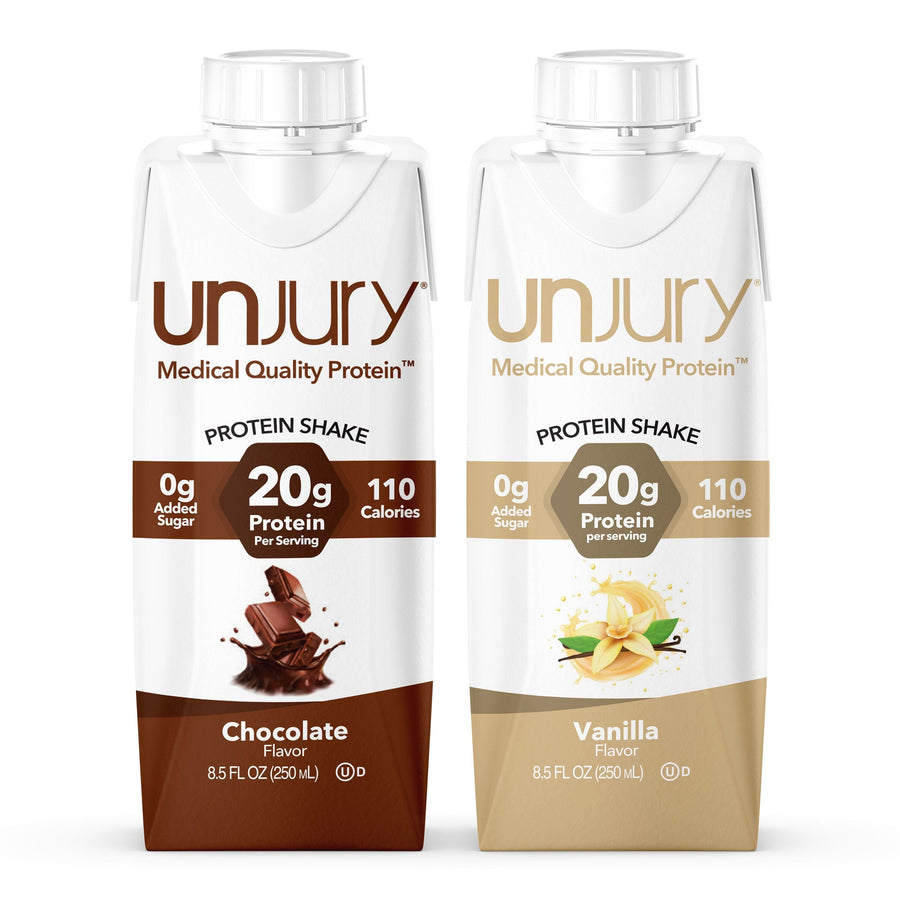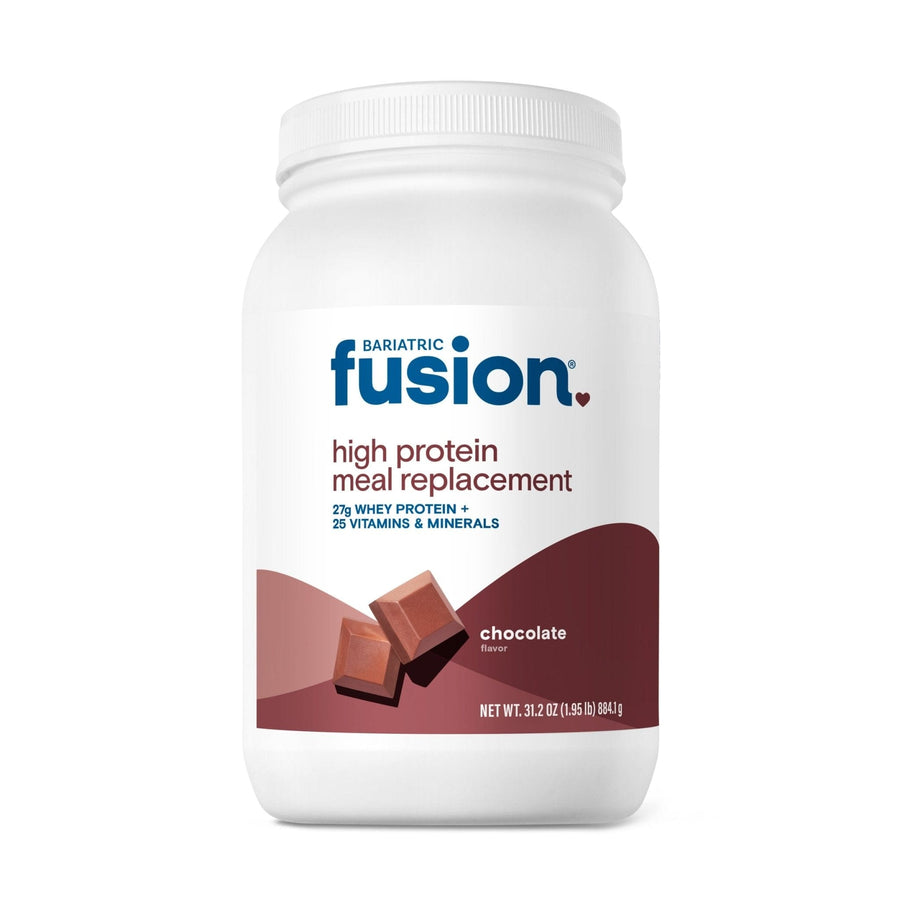Protein, Mood, & Metabolism: What’s the Connection?
Protein often gets the spotlight in the fitness world, but it’s not just for athletes and body builders. Protein is an essential nutrient for every single person, especially if you are recovering from illness, injury, or surgery.
Did you know? Protein plays an important role in hormone production and maintenance and can therefore have a big impact on your mood and energy levels.
How Protein Impacts Mood & Metabolism
Metabolism
Protein helps you maintain muscle during weight loss and as you age. While it’s normal to lose some muscle over time, losing too much muscle can impact how your body burns calories and manages blood sugar.
The more muscle you have, the more calories your body naturally burns each day, even at rest. Since muscle burns more calories than fat, having more muscle can help you burn more calories throughout the day.1
Energy
Protein is the most important nutrient for keeping your energy steady throughout the day. It helps slow down digestion and keeps your blood sugar more stable. This means fewer energy “crashes” and less of that tired, sluggish feeling in the afternoon.2
When you include protein with each meal and snack, such as adding eggs to breakfast, chicken or beans to lunch, or yogurt with fruit as a snack, it provides your body with a steady source of fuel. Getting enough protein can help you feel more alert, focused, and capable of handling your daily tasks without feeling worn down. It’s one of the reasons many people notice they feel better and more energized when they build their meals around a good source of protein.
Mood and Emotional Well-Being
Protein does more than just support your muscles; it also plays an important role in how you feel emotionally. The building blocks of protein, called amino acids, are used by your body to make brain chemicals known as neurotransmitters. Two of the most important ones are serotonin, which helps with feelings of calm and happiness, and dopamine, which supports focus, motivation, and pleasure.
If you don’t get enough protein in your diet, your body may struggle to make enough of these “feel-good” brain chemicals. This can sometimes lead to low mood, irritability, or trouble with concentration. On the other hand, eating enough protein throughout the day can help keep your mood steadier, support better stress management, and even give you more emotional resilience.3
How Much Protein Do You Really Need?
It’s easy to feel confused about how much protein you should eat each day! You may have heard different numbers from doctors, dietitians, or even online influencers. The truth is: There isn’t one “perfect” amount that works for everyone. Your protein needs depend on things like your age, activity level, health conditions, and personal goals.
That said, there are some simple guidelines that can give you a starting point. From there, you and your healthcare provider can adjust based on what works best for your body.
- Adults: ~0.8-1.2g protein per kilogram of body weight4
- Active adults or older adults: 1.2–2.0g protein per kilogram4
Research shows that for most adults, a good rule of thumb is 30-30-30 or 90 grams of protein each day. That is 30 grams of protein, three times each day. This amount is recommended to support strong muscles, steady energy, healthy bones, and even a more balanced mood.5
Think of 30-30-30 as a helpful target, not something to stress over. What matters most is making sure you’re getting enough protein throughout the day, so your body has the steady supply it needs to stay strong and energized.
What Happens if You Don’t Get Enough Protein?
You’ve probably felt the effects of low protein before, even if you didn’t realize it. When your body isn’t getting enough, you might notice feeling more tired, sluggish, or foggy headed. Some people feel weaker, have less stamina, or find themselves getting hungry again soon after eating. That’s because protein helps keep you full and gives your body steady fuel.
Protein also plays a big role in how you feel emotionally. Without enough, it’s common to feel “hangry” (hungry + angry), more irritable, or even a little down or moody. This happens because protein provides the amino acids your brain needs to make important “feel-good” chemicals like serotonin and dopamine.6
Here are some common signs that you might not be getting enough protein:7
- Loss of muscle strength and mass
- Slower metabolism and increased fat storage
- Weaker bones and higher fracture risk
- More fatigue and low stamina
- Mood swings, irritability, or brain fog
- Poor wound healing and slower recovery from illness
Goals for Incorporating Protein
Get More High-Quality Protein in Your Diet from Whole Foods
- Lean meats: Chicken, turkey, lean beef, pork tenderloin
- Fish & seafood: Salmon, tuna, shrimp (fresh and safely stored)
- Eggs: A versatile, high-quality protein source
- Dairy: Greek yogurt, cottage cheese, milk, or fortified alternatives
- Legumes: Lentils, beans, chickpeas (if tolerated)
- Nuts & seeds: Almonds, chia seeds, hemp seeds, pumpkin seeds
- Whole grains: Quinoa, farro, oats
Boost Protein with Shakes & Supplements: YES!
For many people, it’s tough to consistently reach protein goals with food alone. Especially if you have had bariatric surgery and your portions are small, or if your food tastes and preferences have changed. This is where Unjury® protein shakes or powders come in:
- Convenient: Quick to prepare and portable
- Customizable: Mix with water, milk, or smoothies
- Consistent quality: A measured serving ensures you’re meeting daily targets
- Great for recovery: Ideal after workouts, surgery, or illness
Protein supplements aren’t a replacement for whole foods, but they can be a fantastic complement to a balanced diet and a boost to your daily nutrition.
The Takeaway
Protein isn’t just about building muscle; it’s about maintaining your bones, metabolism, energy, and even emotional well-being. By paying attention to your protein intake and adding convenient, high-quality options like Unjury protein shakes or powders, you can give your body the tools it needs to thrive.
References
1. Nunes EA et al. J Cachexia Sarcopenia Muscle. 2022;13(2):795-810.
2. Drummen M et al. Front Endocrinol (Lausanne). 2018;9:443.
3. Lemmens SG et al. PLoS One. 2011;6(2):e16826.
4. Wu G. Food Funct. 2016;7(3):1251-1265.
5. Leon AD et al. Curr Dev Nutr. 2020;4(Suppl 2):621.
6. Journel M et al. Adv Nutr. 2012;3(3):322-329.
7. Pezeshki A et al. Sci Rep. 2016;6:25145













